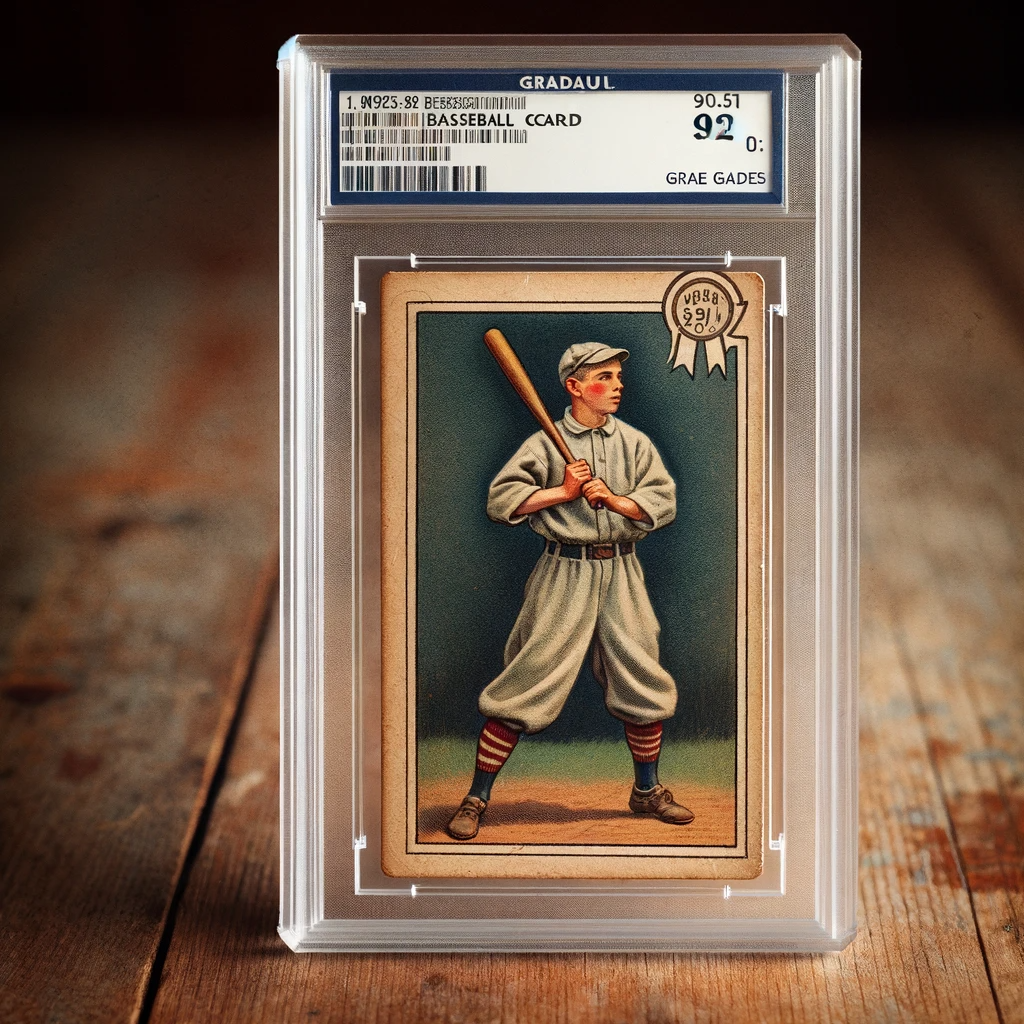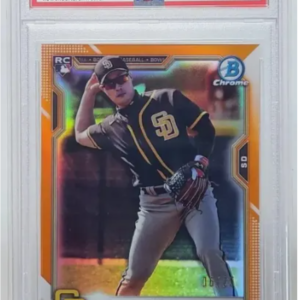
Getting your vintage card collection graded can significantly increase their value, authenticity, and collectability. Whether you’re a seasoned collector or a newcomer to the hobby, understanding the grading process and selecting the right company is essential.
The Importance of Card Grading
Card grading is the process of having a third-party company evaluate the condition of your cards. A graded card is encased in a tamper-proof holder, with a grade that reflects its condition on a scale typically ranging from 1 to 10, with 10 being perfect condition. This grading not only helps in authenticating the card but also determines its market value.
Choosing the Right Grading Company
While there are many grading companies out there, four stand out as the leaders in the industry: Professional Sports Authenticator (PSA), Beckett Grading Services (BGS), Sportscard Guaranty Corporation (SGC), and International Sports Authentication (ISA).
Professional Sports Authenticator (PSA)
PSA is considered the gold standard in the trading card grading industry. Known for its stringent grading scale and consistency, PSA-graded cards often command higher prices in the market. They offer a range of services, including economy, regular, and express, catering to different needs and budgets. The company has a 10-point grading scale and a detailed ‘Population Report’ that shows how many cards of each grade exist, helping collectors understand rarity.
Beckett Grading Services (BGS)
Beckett offers a unique grading scale that goes up to 9.5 (Gem Mint), which sits just below the perfect 10. They also provide sub-grades for centering, corners, edges, and surface, which can be very informative for collectors who want an in-depth analysis of their card’s condition. BGS is known for its thoroughness and high-quality cases, making it a popular choice for modern card collectors.
Sportscard Guaranty Corporation (SGC)
SGC has made a name for itself in the vintage card grading scene. Their straightforward grading scale and black-bordered card holders make for an attractive display. They’re known for their faster turnaround times and have a solid reputation for consistency and accuracy, particularly with cards from before the 1980s.
International Sports Authentication (ISA)
ISA may not be as well-known as PSA or BGS, but it’s gaining traction for its competitive pricing and customer service. They’re a newer player in the grading game but are quickly establishing themselves with a transparent grading process and quick turnaround times.
The Grading Process
The grading process involves sending your cards to the chosen company, where they will be examined by professional graders. These experts assess your cards based on a variety of factors, including centering, corners, edges, surface, and overall eye appeal. After grading, the card is encapsulated in a protective case with the grade clearly displayed.
Preparing Your Cards for Grading
Before you send off your cards, it’s essential to prepare them properly:
- Clean the surface gently with a soft cloth to remove any dust or fingerprints.
- Place them in card savers or semi-rigid holders, which are preferred by grading companies over hard top loaders.
- Fill out the submission form accurately, making sure to declare the value of your cards for insurance purposes.
Costs and Turnaround Time
Grading costs vary depending on the company, the value of the card, and the turnaround time you select. Generally, you can expect to pay anywhere from $10 to $200 per card. The standard turnaround time can range from several weeks to several months, though some companies offer expedited services at a higher cost.
Insurance and Shipping
When sending your cards for grading, ensure they’re insured during transit. Most grading companies offer insurance as part of their service, but it’s up to you to decide the value of your cards and choose the appropriate amount of insurance.
The Impact of Grading on Value
A higher grade can exponentially increase a card’s value. For instance, a vintage card in mint condition could be worth several times more than the same card in a ‘good’ condition. This makes grading an important consideration for anyone looking to sell or insure their collection.
Maintaining the Condition of Graded Cards
Once your cards are graded, it’s crucial to maintain their condition. Keep them out of direct sunlight, away from high humidity, and in a stable temperature environment. It’s also wise to avoid handling the cases too much to prevent scratches or other wear.
Grading your vintage card collection is an investment that can pay off significantly. Whether you choose PSA, BGS, SGC, or ISA, each company offers unique benefits that cater to different types of collectors. Remember that the condition and rarity of your cards are paramount, and proper grading can ensure that your collection is preserved and appreciated for its true value. As you delve into the world of card collecting and grading, do so with knowledge and care, ensuring your cherished collectibles are protected and accurately valued.






